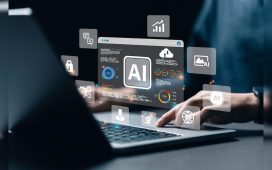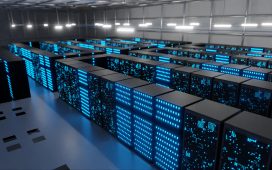In the 21st century, the term “
Artificial Intelligence
” has become increasingly familiar, but what does it really mean?
AI
is not just a futuristic concept from science fiction; it’s a rapidly evolving
technology
that’s already shaping our lives.
Defining AI: What Is It?
At its core, AI refers to the development of computer systems that can perform tasks that typically require human intelligence. These tasks include problem-solving, decision-making, understanding natural language, recognizing patterns, and learning from experience.
How AI Works: The Nuts and Bolts
The functioning of AI is built on two fundamental components: data and algorithms. AI systems process vast amounts of data and use complex mathematical algorithms to make predictions, decisions, or recommendations. The more data an AI system has, the better it can learn and improve its performance.
Types of AI: From Narrow to General
AI can be categorized into two main types: Narrow or Weak AI, which is designed for specific tasks like voice recognition or chess-playing, and General or Strong AI, which has the ability to perform any intellectual task that a human can do. Currently, we have narrow AI in various applications, but we are still working toward achieving true general AI.
Machine Learning
: The Heart of AI
Machine learning is a subset of AI that focuses on the development of algorithms that enable computers to learn and make predictions or decisions without being explicitly programmed. It’s like teaching a computer to recognize patterns and make sense of data on its own.
Deep Learning
: Mimicking the Human Brain
Deep learning is a subfield of machine learning that uses neural networks, inspired by the structure of the human brain. Deep learning has led to significant breakthroughs in areas like image and speech recognition.
AI in Action: Everyday Applications
AI is already part of our daily lives. It powers virtual assistants like Siri and Alexa, suggests content on streaming platforms, recommends products on e-commerce websites, and even assists in medical diagnoses. The possibilities are endless.
The Future of AI: Opportunities and Challenges
The future of AI is both exciting and challenging. As AI continues to advance, it holds the promise of solving complex problems and enhancing our lives. However, it also raises ethical and societal questions, such as privacy concerns and the impact on employment.
Conclusion: AI – A Transformative Force
In conclusion, Artificial Intelligence is a transformative force that is reshaping industries and our way of life. Understanding its fundamental concepts and mechanisms is essential as we navigate an increasingly AI-driven world. As AI technology evolves, so too will its applications and impact, promising a future that we are only beginning to imagine.
(This content is generated with the assistance of Artificial Intelligence)











